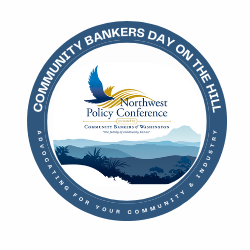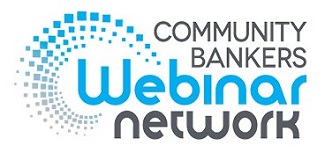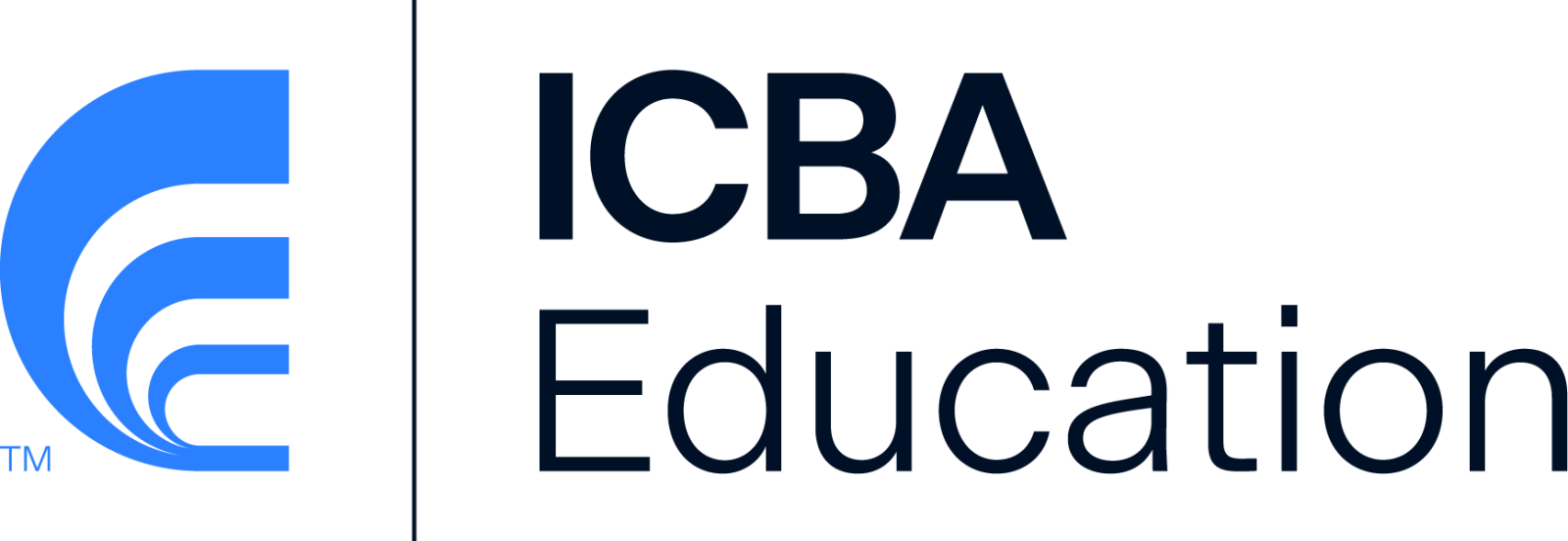Transforming Regulation for Growth
The Community Bank Legislative Agenda
The community bank legislative agenda would create a framework of streamlined regulation and low taxation for community banks and their customers. Community bank credit fuels local economic growth in thousands of communities across America.
Fix Destructive Regulatory Burden
Overly prescriptive regulations continue to encumber community bank lending and inhibit economic growth. Excessive regulation of community banks drives industry consolidation that will directly harm consumers and small businesses. Community bank regulatory relief will promote the flow of credit and economic opportunity for households and small businesses. Our recommendations include:
Update Regulatory Thresholds for Community Banks. To work as originally intended and remain aligned with an evolving financial services landscape, thresholds for regulatory accommodations and exemptions based on asset size, risk profile, and transaction volume should be continually reviewed and adjusted upward as community banks consolidate and the average asset size of banks increases.
Relief from Intrusive Small Business Data Collection Rule. The CFPB’s rule under Dodd Frank Section 1071 requires community banks and other financial institutions to collect and report 81 pieces of data on every small business loan application, well beyond what is required by statute. Intrusive data collection will compromise the privacy of small business applicants, effectively “commoditize” small business lending, and increase the cost of credit. We urge the 119th Congress to promptly repeal or substantially revise Section 1071 to limit the implementation of a destructive rule.
Modernizing the Bank Secrecy Act. We recommend raising the currency transaction report (CTR) threshold from $10,000 to $30,000 and indexing future increases on an annual basis. The current threshold, set in 1970, is significantly outdated and captures far more transactions than originally intended. A higher threshold would produce more targeted, useful information for law enforcement.
Ensuring a Competitive Financial Landscape
Community banks embrace innovation in financial technology, which offers the promise of reaching more consumers and expanding products and services. As Congress continues to review and reform the legal and regulatory framework of financial services, we urge them to ensure that it promotes community bank innovation.
The competitive advantages enjoyed by tax-exempt credit unions and Farm Credit System lenders warrant special scrutiny.
Preserve and Enhance a Competitive Tax Environment.
Community banks advocate for pro-growth tax relief for America’s small businesses, families, and community banks. Expiring provisions of the Tax Cuts and Jobs Act should be permanently extended to provide long-term certainty for business planning, including:
Comprehensive tax legislation must include the Access to Credit for Rural Economies (ACRE) Act to promote rural economic development. The ACRE Act would create a tax exclusion for interest received on qualifying loans to farmers, ranchers, and rural homeowners and thereby reduce interest rates for these borrowers.
Tax reform should include a review of the tax exemption enjoyed by today’s multi-billion-dollar credit unions. These institutions have outstripped their public mission and tax-exempt purpose and are now leveraging their tax exemption to purchase tax-paying community banks. The pace of these acquisitions in recent years is driving the consolidation of financial services across all markets, to the harm of consumers and small businesses.
These tax policies are important to creating economic growth and jobs for American workers.
Close ILC Loophole to Limit Big Tech Overreach. Industrial loan companies (ILCs) are the functional equivalent of full-service banks without regulation by the Bank Holding Company Act. This exemption invites risk into the financial system. ILCs owned by non-financial companies, including Big Tech, violate the longstanding separation of banking and commerce by allowing commercial entities to own banks. We support statutory closure of the ILC loophole.
Promoting De Novo Community Banks. De novo community bank formation is needed to offset the loss of smaller community banks through consolidation and help ensure a robust community bank landscape serving small businesses and households. We support a flexible and tailored supervisory policy for de novo banking applicants.
Ensuring Effective Digital Assets Regulation. Effective and comprehensive regulation is needed to recognize and balance the risks and benefits of emerging technologies. We strongly oppose efforts to grant nonbank stablecoin issuers access to the Federal Reserve master account or payment rails and special-purpose charters that do not subject nonbank stablecoin issuers to the standards of safety, soundness, and fairness that apply to insured depository institutions.
Credit Card Routing Mandates. Community banks will continue to strongly oppose controversial legislation that would create complex new credit card routing mandates. Such mandates would force an overhaul of the payments landscape at significant systemic cost. This cost would ultimately be borne by consumers and the community banks that serve them. Credit card routing mandates would only benefit the largest “big-box” merchants including Amazon, Walmart, and others at the expense of consumers.
Curb or Eliminate Tax Subsidies for Rapid-Growth, Bank-Like Credit Unions. The outmoded subsidization of credit unions is an inefficient use of taxpayer dollars and ripe for repeal. Today’s multi-billion-dollar credit unions are leveraging their tax subsidy to purchase tax-paying community banks. This trend is reducing consumer choice and eroding the tax base of states, localities, and the federal government. We urge Congress to restore balance to the American financial services marketplace and help close the growing budget deficit by re examining the 100-year-old credit union tax subsidy.
Revitalize Rural America
The recent elections reaffirmed the critical voice of rural Americans, who have earned a place at the center of our policy agenda. The vital interests of rural economies must be prioritized in the 119th Congress. Community banks, funding nearly 80 percent of bank-originated agricultural loans, play a critical role in creating and sustaining rural economic prosperity. The following provisions will help rural America and strengthen community banks.
Farm Bill. Community banks advocate for a robust Farm Bill in 2025 that raises USDA guaranteed loan limits and speeds up loan approvals in addition to providing a strong farm safety net that includes robust commodity price supports and enhanced crop insurance options for producers.
Farm Credit System Crowding Out Rural Community Bank Lending. The Farm Credit System (FCS) is a government-sponsored enterprise (GSE), and FSC lenders enjoy unfair tax and funding advantages over rural community banks. Congress should block further expanded lending powers and hold hearings on the FCS given their rapid consolidation and questionable non-farm lending pursuits.
Tax Incentives for Community Bank Agriculture and Home Loans. Community banks strongly support the Access to Credit for Rural Economies (ACRE) Act, which has enjoyed broad bipartisan support. ACRE would create lower interest rates for farmers, ranchers, and rural homeowners by creating a tax exclusion for interest income on loans secured by agricultural land 3 and residential mortgages in rural communities. The ACRE Act should be included in any comprehensive tax legislation in the 119th Congress.
Strengthening Financial Consumers
As the financial landscape evolves, new threats emerge to America’s financial consumers. Policy changes are needed to keep pace with technological developments and more sophisticated fraud.
End “Trigger Leads” Harassment. Legislation is needed that would restrict credit reporting agencies from the sale of consumers’ contact information when they apply for a residential mortgage. These “trigger leads” compromise consumer privacy and create a flood of unwanted solicitations and confusion for community bank customers. Community banks urge Congress to resume work on the Homebuyers Privacy Protection Act, bipartisan legislation advanced in the 118th Congress.
Eliminate Check Fraud. The administrative agencies must play a stronger role in combatting the alarming rise in check fraud. A coordinated effort is needed by the federal banking agencies, the National Credit Union Administration, the U.S. Postal Service, the Financial Crimes Enforcement Network, and other agencies. Congressional oversight of this critical effort will ensure it is effective.
Protecting Customer Data. The CFPB recently finalized a rule under Section 1033 of the Dodd-Frank Act that requires banks to create and maintain an API-enabled “developer portal” which non-bank fintechs and other third parties could use to access customer data. The rule creates a threat to consumer data security and privacy. Banks cannot ensure the security protocols of potentially thousands of fintechs seeking access to their customers’ data. In addition, banks must be permitted to charge reasonable fees to third parties – who will financially benefit from access to customer data – in order to offset the significant costs of compliance with this rule.


 Over 200 Live & On-demand Webinars
Over 200 Live & On-demand Webinars Career Development For Every Banker. Use code WA-CBW at checkout
Career Development For Every Banker. Use code WA-CBW at checkout